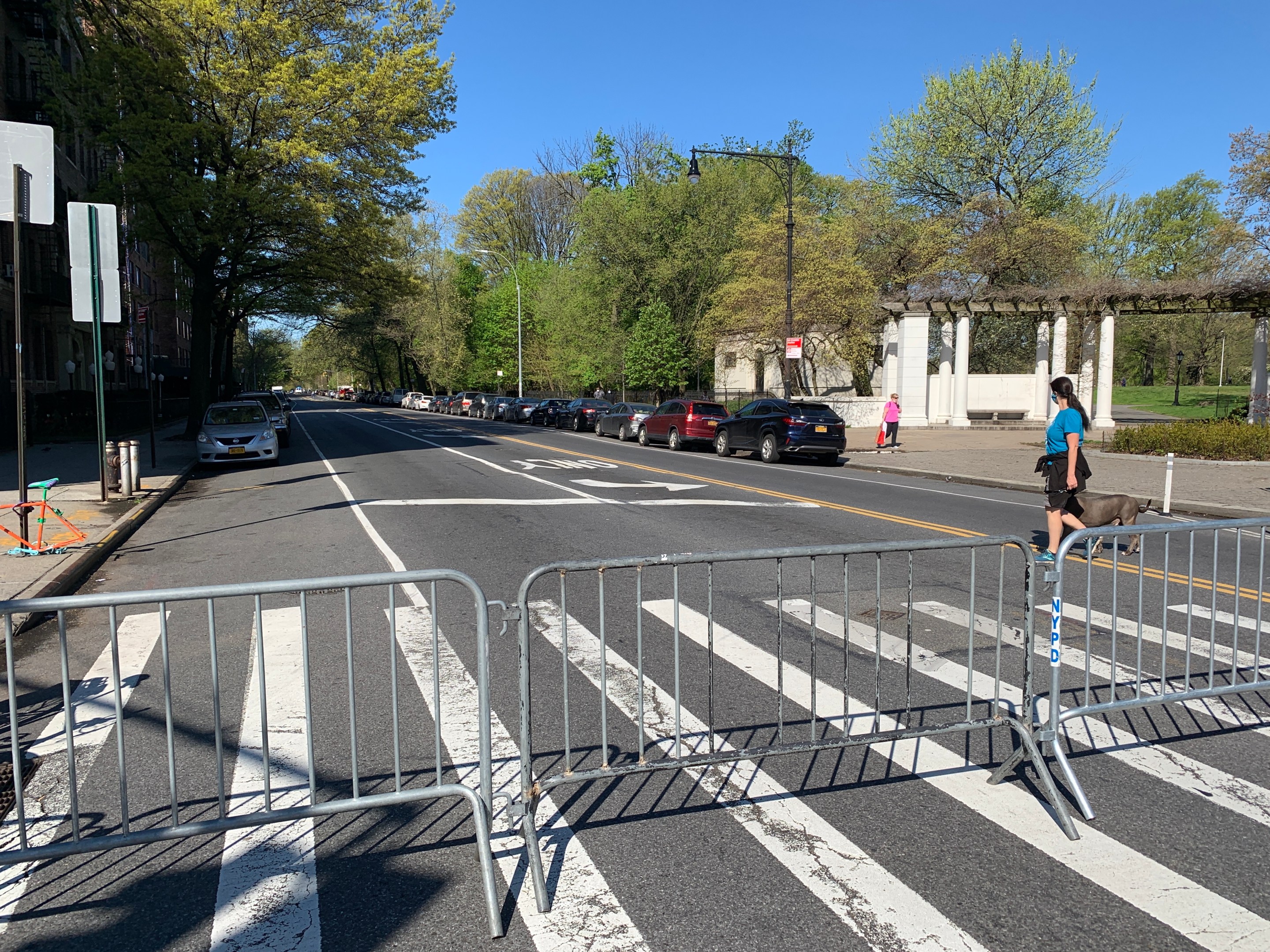The city's attempt to create 100 miles of open-streets will end up being controlled by business groups or well-organized neighborhood groups at the expense of hard-hit, suffering communities that desperately need the space, warn advocates and progressive lawmakers.

The concern stems from the city's lengthy list of guidelines and basic requirements that neighborhood groups or business improvement districts are expected to follow after they volunteer to implement the city policy — guidelines that include monitoring the spaces, deploying and moving barricades, and staffing the open space with volunteers or (in the case of BIDs) paid workers.
Many groups may find the requirements difficult — and, indeed, virtually all of the open streets that begin today will be overseen by business improvement districts, not the city or residents (and not even very well — the streets overseen by the Lower East Side BID will only be open in the mornings, Streetsblog has learned).
And it raises some red flags.
"I don’t believe real estate interests and business owners — and that's what BIDs are — should be dictating which open streets should be created and where," said State Sen. Jessica Ramos, whose Queens district includes a coronavirus epicenter. "There is no room for real estate owners to be the sole voice as to what happens to a street. Streets belong to people, all people. They do not belong to the real estate owners who may own property on that block. It’s not how this works."
BIDs are the worst.
— Jessica Ramos (@jessicaramos) May 6, 2020
Ramos and others say that the city should implement the program by redeploying its existing staff — without the NYPD, who have violently arrested black and brown New Yorkers for alleged social-distancing violations, including at least three recent incidents in the East Village, East New York, and Long Island City. (The mayor has insisted that "enforcement" remains his top priority in the open-streets program.)
This spectacle of state-sanctioned police violence against black folks in name of "public health" is flip side of the same coin of the spectacle of privileged white folks freely & joyfully moving through parks and "open streets" https://t.co/x9Jl62VAgm
— Do Jun Lee 이도준 (@dosik) May 3, 2020
"The city should step up," Ramos said. "We can figure out folks who have the expertise and know how how to interact with people. We have crossing guards, DOT employees, traffic enforcement agents who might not be working as much right now. We have the work force capacity to do this among existing employees."
And that concern might only be exacerbated by involving the business community in the name of creating open streets: enforcement will invariably focus on people of color. Disenfranchising communities of color is a BID specialty, Ramos added.
Council Member Brad Lander of Brooklyn said he had asked the de Blasio administration about using crossing guards, but was rebuffed.
“That’s a real solution that does not require NYPD officers, doesn’t require a preexisting community organization that’s interested and has the capacity," he said. "I’m puzzled by the administration’s refusal to do this. It’s a combination of the mayor’s disinterest and ambivalence in the program generally, with fact that crossing guards report to NYPD even though this a function now of the DOT.”
Officially, the city has said it is committed to ensuring that the 100 miles of open streets will serve communities in need — with city workers if neighborhoods do not have the resources or focus to man the open streets.
"There are a lot of business improvement districts that have been excited about this, and we’re hearing from elected officials and we hope in the coming weeks to roll out a bunch of different places," DOT Commissioner Polly Trottenberg told Streetsblog last week. "Neighborhoods, though, where we think we really need to do this, but maybe there isn’t a local partner, those may be places where you will see more city staff stepping in to make sure it will happen."
That dynamic may play out in Flushing, for example.
“It may not be feasible for any of the community groups to staff these types of open streets,” said John Choe, executive director of the Greater Flushing Chamber of Commerce. “This is a working-class community. ... The very act of survival and feeding your family is probably the highest priority for most people here.”
Erwin Figueroa, an organizer with Transportation Alternatives, works on street safety advocacy with groups all over the city, so he's uniquely situated to know the challenges — and how the city should deal with them.
“If the goal is to have to local partners, not every partner will have the resources, and if they don’t have resources, where can the city step in and provide resources in terms of funding or finding people able to do it?” he asked.
— With Gersh Kuntzman






